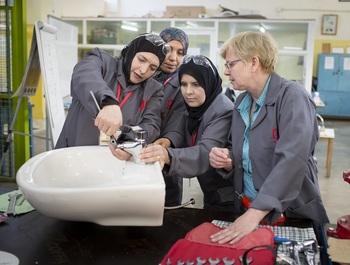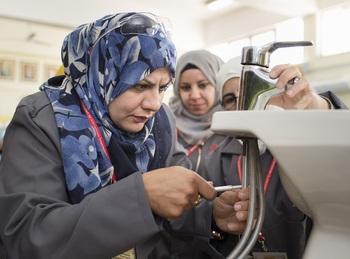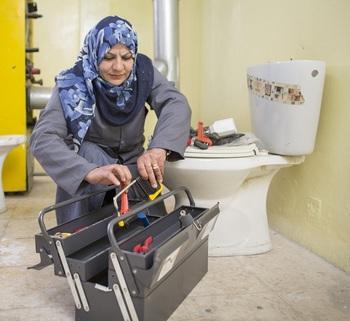Context
Jordan is one of the world’s most arid countries. The demand for water is rising continuously as a result of the expansion of irrigation farming, increasing industrialisation and strong population growth. On top of this, the crisis in neighbouring Syria has seen more than 655,000 refugees register in Jordan. Estimates suggest that nearly the same number of unregistered refugees also live in the country. This is increasing the pressure on scarce water resources and bringing the already inadequate supply infrastructure to the limits of its capacity.
The inefficient management of Jordan’s scarce water resources is currently leading to enormous technical and administrative water losses. This is due to the population’s lack of awareness about the need to use water sparingly and to the poor quality of the water and sanitation infrastructure. Neglect also plays a role, especially when it comes to maintenance at the household level where water is lost due to inadequate servicing of sanitary installations. In Jordan’s conservative society, the plumbing trade is very male-dominated, making it difficult for women to enter the profession. A visit by a male plumber to the home usually requires the presence of a male family member, which means there is often a time delay before leaking taps and other defects are repaired – and so precious water is lost.
Large quantities of water are also wasted on the public supply network side as the Jordanian water authorities do not have enough sufficiently skilled workers to efficiently operate and service the pipeline systems and the technical infrastructure in the long term. The lack of qualified operating staff at the water supply companies and of sanitation experts, especially female experts, who offer water and sanitation installation and maintenance services at the household level prevent the effective use of water resources.


